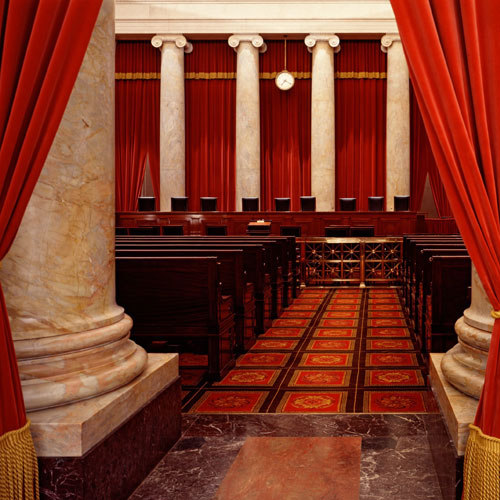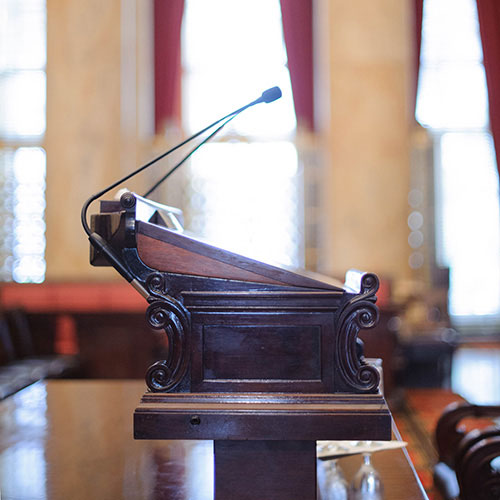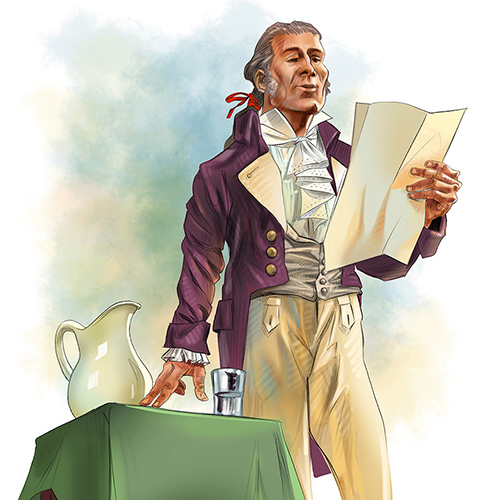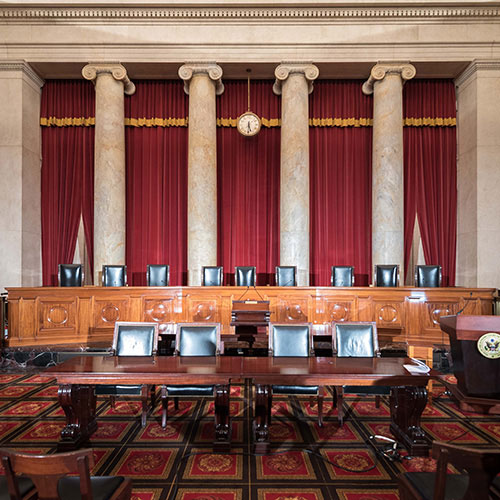Of the 1999-2000 filings, about two-thirds came in forma pauperis, from people unable to pay the costs, and about a third of these from prison inmates. One of the Clerk’s staff pulls samples from a shelf in a room full of bulky files. “I received a sentence of death for first degree murder and am presently in custody on Death Row at Florida State Prison,” a petitioner writes. For his limited part in a robbery conspiracy involving killing, he pleads, the death penalty would be cruel and unusual punishment, in violation of the Eighth Amendment. In another petition, an indigent woman from Texas, seeking to establish fatherhood of her son, challenges the constitutionality of a state law that says that paternity suits must be brought before the child is one year old.
The Clerk of the Court’s staff separates such cases from the paid ones, noting in passing the changes in the types of filings: “Now we’re getting many discrimination and affirmative action cases, appeals involving political contributions, family law cases, First Amendment cases, and always appeals of criminal convictions.”
The Clerk also receives lawyers’ applications for admission to the Supreme Court bar—Approximately 3,600 Attorneys were admitted during the 2015 Term at a fee of $200. The Clerk schedules the introduction of candidates who wish to appear in person. After the Chief Justice has greeted them before the bench, the Clerk swears them in as members. Some 299,200 attorneys have been admitted since 1925.
Gail Curley, who has been the Marshall since June 2021, is responsible for overseeing the operations of the Supreme Court building, including space management, maintenance and cleaning, renovation, property and supplies, procurement and contracting, telecommunications, parking, managing the motor pool, and coordinating most events at the Court. The Marshal coordinates ceremonies—such as the investitures of new Justices—and arranges special events—such as the reception of dignitaries and other visitors. The Marshal directs the Supreme Court Police, whose 163 officers provide security for the Justices, the Supreme Court building and grounds, and other Court employees. The Marshal is responsible for financial matters, including disbursement of payroll and payment of the Court’s bills as a Treasury Disbursing Officer. The Marshal also attends all sessions of the Court, gaveling the Court to order and “crying” the Court (announcing its arrival), and manages the Courtroom, including seating, security, recording proceedings and keeping time of oral counsel. Approximately half of the Court’s 500 employees are members of the Marshal’s Office.




